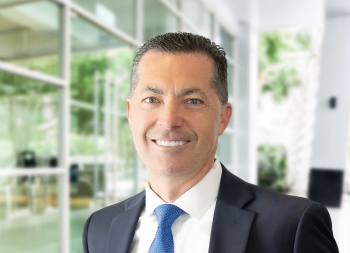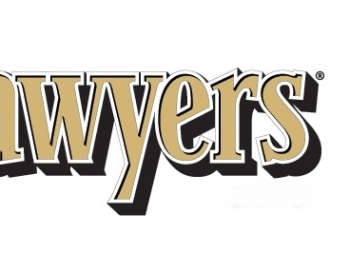Oppression of Shareholders, Good Faith, and the Duty of Loyalty
Most business organization statutes including those for corporations, limited liability companies, and limited partnerships provide remedies for oppressed shareholders or partners. Statutes generally are phrased in terms of the power of the courts to dissolve a corporation or limited liability company when the Court finds that those in control of the corporation have acted illegally, fraudulently, or in a manner which is oppressive to some shareholder, or members or have engaged in conduct which is “unfairly prejudicial” either to the corporation or to any shareholder or member. These statutes generally provide for some remedy short of dissolution, normally a buyout of the minority interest. Some cases indicate that in certain circumstances the minority can be required to buy the interest of the majority.
The conduct of officers, managing members and directors will frequently be examined by the Courts using an objective standard. These individuals are often said to have fiduciary duties to the corporation and the shareholders or members of the company. The most frequently cited description of the fiduciary duty of a partner is the famous enunciation by Justice Cardozo while he was on the New York Supreme Court.
…[C]opartners, owe to one another, while the enterprise continues, the duty of the finest loyalty. Many forms of conduct permissible in a workaday world for those acting at arm’s length, are forbidden to those bound by fiduciary ties. A trustee is held to something stricter than the morals of the market place. Not honesty alone, but the punctilio of an honor the most sensitive, is then the standard of behavior. As to this there has developed a tradition that is unbending and inveterate. Uncompromising rigidity has been the attitude of courts of equity when petitioned to undermine the rule of undivided loyalty by the ‘disintegrating erosion’ of particular exceptions. Only thus has the level of conduct for fiduciaries been kept at a level higher than that trodden by the crowd. It will not consciously be lowered by any judgment of this court.
Subsequent statutory enactments including the Limited Liability Company Act did not go as far as Justice Cardozo did in 1928. The members of limited liability companies are by statue bound to duties of loyalty and care. There is also a requirement of good faith and fair dealing.
Shareholders generally owe no duty to the corporations or to other shareholders. They are passive investors. Rather, directors and officers stand in a fiduciary relationship to the corporation and its shareholders. The standard they must follow is “utmost good faith,” a strict rule of honesty and fair dealing.
In Delaware, corporate officers owe fiduciary duties that are identical to those owed by corporate directors. Fiduciary duties run to shareholders and corporations not to fellow officers or directors.
What is a Fiduciary Duty?
It means that directors and officers of corporations owe the corporation complete loyalty, honesty and good faith. A director or officer’s first duty is to act in all things of trust wholly for the benefit of the corporation. It includes a duty to disclose the information to those who have a right to know the facts.
The duty of good faith is comprised of (1) a general baseline conception, and (2) specific obligations that instantiate at conception. The baseline conception consists of four elements: (1) subjective honesty or sincerity; (2) non-violation of generally accepted standards of decency applicable to the conduct of business; (3) non-violation of generally accepted basic business norms; (4) and fidelity to office.
Duty of care and the duty of loyalty do not cover all types of improper managerial conduct. The duty of care requires the manager to perform his duties in a manner that he reasonably believes to be in the best interest of the corporation, with a view towards maximizing corporate profit and shareholder gain. The duty of loyalty requires a manger to act fairly when he acts in his own self-interest or the self-interest of an associate or family member.
The Model Business Corporation Act provided for good faith in the discharge of the duties of directors. Frequently state corporation acts provide that under certain conditions the corporation has the power to indemnify the costs and outcome to litigation and other proceedings, providing the manager acted in good faith even by agreement.
Disinterested directors, for example, are frequently involved in making corporate decisions involving the conduct of other directors or officers. The duty of loyalty is typically inapplicable to these directors because by hypothesis they have no material, financial ties to either the directors whose transaction or conduct is at issue or to the transaction or conduct itself. As a result of the business judgment rule, typically it is also very difficult to prove that the directors have violated the duty of care. The solution is to apply the duty of good faith to determine whether the approving directors have acted with the impermissible motive of favoring their colleague.
Corporate directors and officers as well as majority members in limited liability companies are well advised to conduct business with a keen awareness of the threat of potential shareholder actions.
Six Steps to Reduce or Eliminate the Possibility of a Shareholder Suit or Oppression Action
1. Transparency: Corporate meetings should be properly noticed with sufficient details about proposed actions to allow for any owner or member to participate and have a voice.
2. Proper documentation of corporate action should be routinely expected and required.
3. Compensation details should be made available to all owners together with the mechanism by which compensation is determined.
4. Perks or prerequisites including club memberships, dues and travel should be examined for appropriateness, reasonableness and allowability.
5. Self-dealing by majority owners and officers in a corporation or LLC should be disclosed, noticed for appropriate consideration by the managing members or the entire membership, by the board of directors or shareholders, and objectively considered.
6. In certain circumstances, delegation of approval for transactions involving corporate insiders and the potential for self-dealing should be delegated to third-party neutrals, frequently lawyers retained by the corporation or limited liability company for that purpose.
Charleston Business and Commercial Litigation Lawyers
Whether you are a minority shareholder seeking to protect your interests or a corporation defending against an unfounded claim, our business and commercial litigation lawyers have extensive experience representing oppressed shareholders. You can learn more about our business and commercial litigation practice here or contact us to speak with an experienced attorney.





















































































































































































